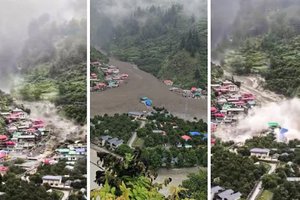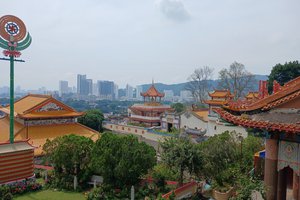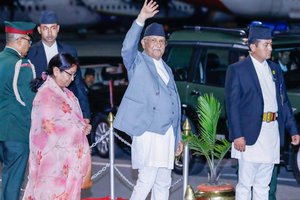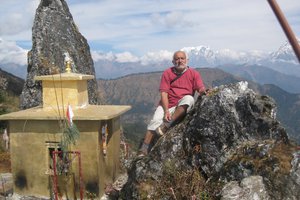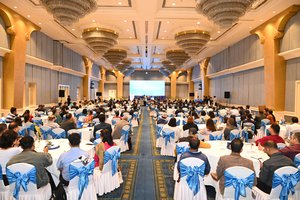Opinion
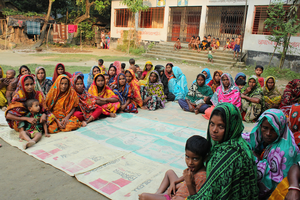
Vanishing Aid, Escalating Risks: Strengthening Partnerships and Empowering National Resilience in an Era of Dwindling Donor Support
The flow of development aid to Asia and the Pacific is in sharp decline, a trend that jeopardizes hard-won progress in health, education, disaster management, and climate resilience and tests the strength of global solidarity. To sustain and build on past gains, donors and national governments must work together to renew principled support, strengthen national systems, and steadily transition toward inclusive, resilient development powered by domestic resources and South-South cooperation.
By Dr. Dhruba Gautam and Nisha Karki Aug 11, 2025
Stolen Victims' Justice
As TJ process reaches a critical crossroads, stakeholders seem increasingly divided. Politicalinfluenced interest groups are trying to split victims and civil society. While commissions are supposed to be independent, the government appears to be exerting control, under the guise of coordination.
By Shobhakar Budhathoki Aug 10, 2025
NDC3IP Formulation Process Launched
The NDC1prioritisedadaptation actions. A roadmap for NDC1 implementation was drafted in 2018.The Ministry of Forests and Environment (MoFE) - climate change focal point of Nepal - prepared an ambitiousNDC2 (2021-2030) with commitments to GHGs emissions reductionsubject to the availability of funding. The NDC2 committed, inter alia, to prepare and implement climate-resilient and gender-responsive adaptation plans in all 753 local levels by 2030. A total of USD 25 billion was estimated to achieve the conditional mitigation targets with an additional USD 3.4 billion for unconditional targets.
By Batu Uprety Aug 10, 2025
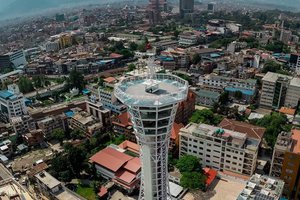
Understanding the Supplementary EIA
Nepal's Environment Protection Act (EPA, 2019) defines SuEIA 'an EIA to be made again vis-à-vis a proposal submitted in order to make revision partly in physical infrastructure, design or form, transfer or alter a structure, add a forest area or increase the project capacity on the EIA proposal which has been already accepted'.
By Batu Uprety Jul 27, 2025
Realising Quad’s Rare Earth Potential
This rising demand, on the other hand, runs into a cautious fact: China controls almost the entire rare earth value chain. For decades, Beijing has carefully built a stranglehold on not just mining, but more importantly, on advanced processing, refining, and the making of important rare earth magnets.
By Harsh Pandey Jul 23, 2025
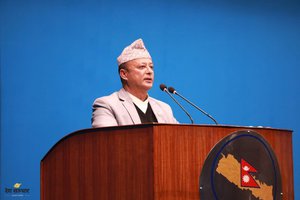
Energy Minister Deepak Khadka's One-Year Term: Achievements and Shortcomings
Instead of supporting NEA's Managing Director Kulman Ghising in his efforts to recover these dues, Khadka spent his time trying to undermine Ghising by seeking excuses to discredit him, disrupt board meetings, and limit his authority.
By Bikash Thapa Jul 20, 2025
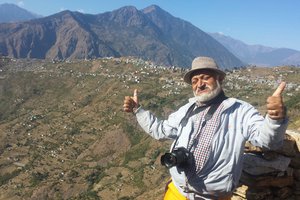
New ruler: Ruler Failed to Figureout the Ecology of Nepal
In the decade following the end of the Rana oligarchy (after theDelhi agreement of 1951), five Prime Ministers in Nepal failed to establish a democratic system. Despite the trust placed in them by the monarchy and the people, leaders such as Matrika Prasad Koirala, K. I. Singha, Tanka Prasad Aacharya, Subarna Shumshere Rana, and B. P. Koirala were unable to bring about lasting democratic reforms.
By Prof. Dr. Prem Sharma Jul 19, 2025
Lost in the Rhetorical Mirage of Middle-Income Aspirations Without a Sustainable Economic Security Foundation Part -2
Proto-Nationalism Entrapped in Musical Chair Circle of Political Party and Floundering Economy : Lost in the Rhetorical Mirage of Middle-Income Aspirations Without a Sustainable Economic Security Foundation Part -2
By Kedar Neupane Jul 18, 2025

Do not try hard to be a genius, just try not to be stupid!
That moment stayed with me. There is indeed an over-glorification of solution-driven thinking in many organisations and in our society at large. We tend to see problem-spotters as roadblocks and label them “troublemakers,”
By Maneesh Pradhan Jul 16, 2025
Behind Nepal’s Political Instability: Flaws In Loktantra’s Ethical Foundation
The answer lies in the old expression of someone being scared of his own shadow. It is not just the plentiful corruption scandals that are tumbling outevery day: they are but symptoms of the deeper rot that began over three decades ago.
By Dipak Gyawali Jul 15, 2025
Latest Updates
- Terrorist attacks on India are intolerable for Nepal: Leader Rijal
- 1 day ago
- Durga Prasai Released on Bail
- 6 days, 14 hours ago
- Pakistani Embassy Organized A Talk Program In Kathmandu
- 6 days, 15 hours ago
- Prime Minister's Oli To Participation on LLDC3 In Turkmenistan
- 1 week, 3 days ago
- Hamas Launches A Coordinated Fake Campaign Against Israel Disseminating False Narratives and Fabricated Images
- 1 week, 4 days ago
- Minister Khadka Inspects Mahakali Irrigation Project, Directs Timely Completion
- 2 weeks ago
- Syafrubesi-Rasuwagadhi road section in operation
- 3 weeks, 1 day ago
- Gelephu Roadshow 2025: Connecting India and Bhutan for Sustainable Development
- 3 weeks, 3 days ago
- Embassy of Nepal in India and PHDCCI India-Nepal Centre Organised “India-Nepal Economic Cooperation Meet 2025
- 4 weeks ago
- Bhanu Jayanti being celebrated today
- 1 month ago
